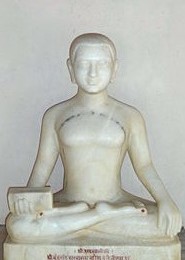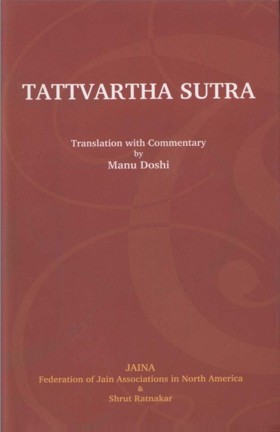08.05 Ādyo Jnāndarshanā varan vedaniyamohanīyāyushkanāmgotrāntarāyāh
Audio: Sanskrit: आद्यो ज्ञानदर्शनावरण वेदनीयमोहनियायुष्कनाम गोत्रान्त्रयाः।
Hindi: प्रथम प्रकृति बंध ज्ञानावरण, दर्शनावरण, वेदनीय, मोहनीय, आयुष,नाम, गोत्र और अंतराय रूप है।
08.05
English: Jnanāvaraniya, Darshanāvaraniya, Vedaniya, Mohaniya, Āushya, Nam, Gotra and Antarāy are the main types of Karma.
This sutra mentions eight main 8 types of Karma, which are as under:
Jnānāvaraniya, Darshanāvaraniya, Mohaniya and Antarāy types are considered as Ghātiya or Ghāti (defiling), because they hinder the manifestation oi soul's natural attributes. The remaining four types, viz. Vedaniya, Ayushya, Nam and Gotra are termed as Aghati (non-defiling), because they do not adversely affect the nature of soul. The soul has simply to bear their consequences.
 Acharya Umaswati
Acharya Umaswati
